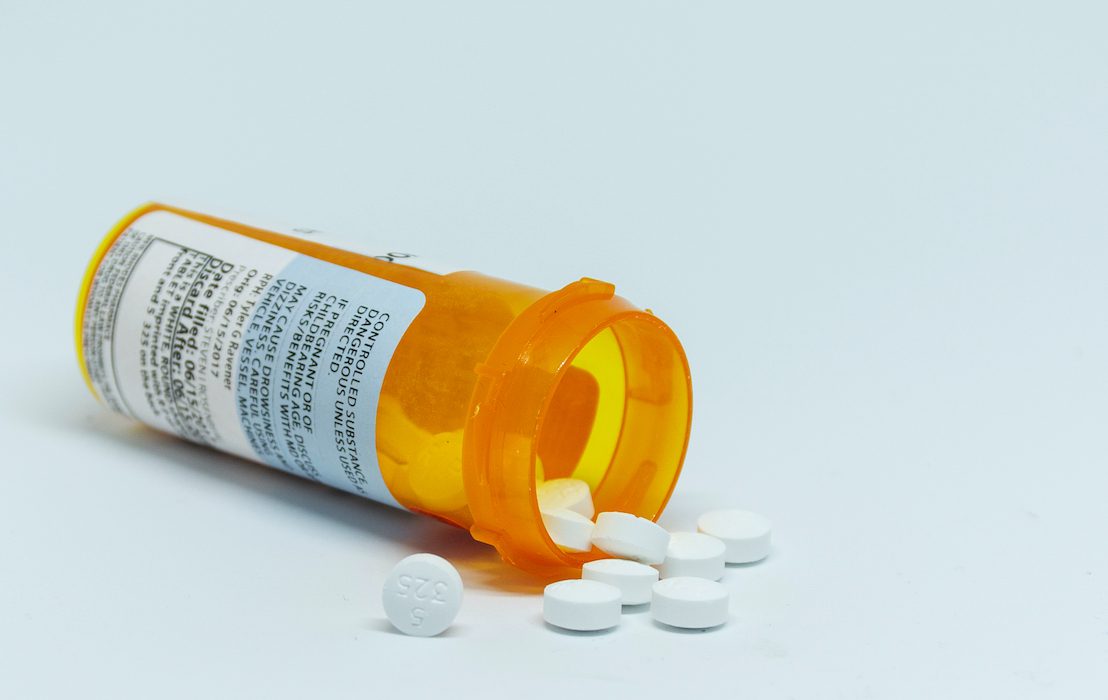High Crimes and Misdemeanors

It’s been a week for thinking about the opiate-opioid distinction, not that it matters much. Opiate is the older term, for what you might call a natural substance that acts on your brain’s opioid receptors, most basically the old classic, opium, but more commonly morphine; opiates are narcotics directly derived from poppies. Opioid, on the other hand, is the broader term for all such activating substances, and contains synthetic analogues—cooked up in a lab to behave similarly to opiates. Either way, we made them; we did this to ourselves. Or, to be more honest, and once again borrow a great insight from C.S. Lewis’s Abolition of Man, some people did this to other people.
Opiates are in the news because Afghanistan produces almost all of them and Afghanistan is, obviously, in the news. Some 85 to 90 percent of the global heroin supply is thought to originate in Afghan poppy fields. In 2018, the U.N. Office on Drugs and Crime estimated poppy growing and opiate trafficking made up 20 to 32 percent of the country’s economic output. I’ve been thinking about opioids, too, though, because I’m an American and we have, putting it mildly, a problem with opioid addiction, but also because the Sacklers—the family that owns Purdue Pharma, whose multibillion dollar fortune was built pushing OxyContin on their fellow citizens—are back in the news, too. The Taliban and the Sacklers, maybe they should meet.
As the New York Times reported, David Sackler, as representative member of the clan, declared in court Tuesday that the family would renege on a $4.5 billion pledge of money for American communities affected by the opioid crisis, “unless a judge grants it immunity from all current and future civil claims associated with the company.” If not granted such immunity, “the Sacklers would resume fighting all the cases ‘to their final outcomes’ — a process that would be inordinately costly and protracted for everyone involved,” according to the Times. (It’s important to remember the people on one side of these lawsuits are billionaires.)
More from David Sackler on Tuesday, and his family’s demands:
He said the family anticipated that the liability shield would cover him, other members of his extensive family, and about 1,000 other individuals, including contractors and consultants, and protect them from lawsuits that had nothing to do with opioids.
That means they would be forever immunized from any current and future lawsuits worldwide related not only directly to Purdue’s opioids but to other drugs the company makes, including drugs for addiction reversal, high cholesterol and even constipation as a result of taking prescription opioids.
This bit of stick ’em up has come during Purdue Pharma’s bankruptcy hearing. Besides the settlement, pledge, get-out-of-jail money—whatever you want to call it—the plan includes turning Purdue Pharma into a public benefit company, the profits of which would largely go to funding those $4.5 billion for relief of opioid-ravaged communities, while the Sacklers would cut and run. They’d have their money and international companies, but no longer be involved with Purdue. Without the settlement money, the Times says, “the deal will almost certainly collapse.” The Sacklers are willing to tidy the company away; they only hope the rest of America will all be big enough to put this unpleasant bit of business behind us.
Justice has been defined as rendering to each according to his due. You don’t have to torture that definition, certainly not draw and quarter it, to question whether justice will happen here. Neither $4.5 billion from Purdue Pharma’s future performance nor the Sacklers being let off with legal immunity from future lawsuits seems sufficient or appropriate for the enormity of what has been done to America. And justice won’t be done if the architects of the opioid regime at the Social Security Administration, Health and Human Services, and (irony unavoidable) Justice Department aren’t held accountable, too. As my colleague Helen Andrews wrote in a review of Patrick Radden Keefe’s brave Empire of Pain: The Secret History of the Sackler Dynasty, “the Sacklers’ defense that they didn’t know their product was fueling an epidemic is false. They did know. They just didn’t care. But their other defense has more merit: that they were not the only ones responsible.”
So, justice probably won’t be done. The record for catastrophes and crimes on this scale does not inspire confidence. Too big to fail (except upward) is the rule in contemporary American life. As our society has grown more complex—interconnected, systems-based, digital, automated, financialized—individual responsibility has grown more obscured. The people, in our moral imagination, are just more parts of the machine. Executives and board members, decision makers, do not go to jail in the aftermath of a subprime mortgage crisis and consequent recession. Public health bureaucrats are not prosecuted for their role in funding the (not proven, but that’s what tribunals are for) development of Covid-19 in a lab in Wuhan, or for lying to the American people. And, as we all watch the Taliban establish control of Afghanistan in a week, generals and flag officers and security-state officials do not resign when the U.S. military loses wars. Justice is personal, found in fine distinctions. But it seems distinctions don’t matter much.
Comments